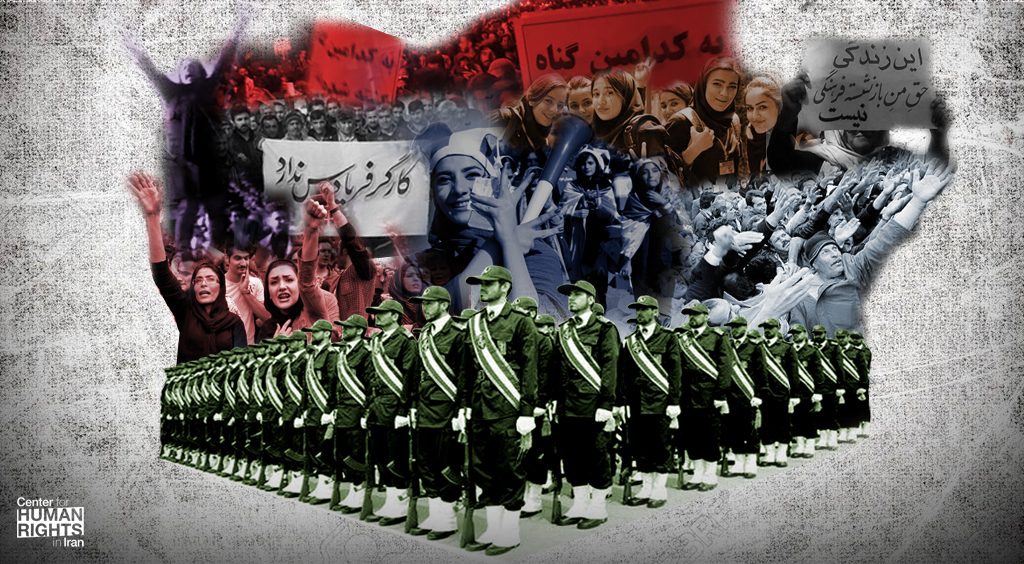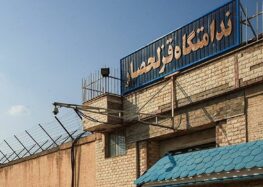Raisi Government to Launch Religious “Vice-Prevention” Courses, Paramilitary “Community Patrols”
 Two months after the inauguration of ultra-conservative President Ebrahim Raisi, Iran’s state-run Headquarters for the Promotion of Virtue and Prevention of Vice organization has announced plans to launch religious college-level courses dedicated to the “promotion of virtue and prevention of vice”, according to Iran’s Islamic government’s interpretations.
Two months after the inauguration of ultra-conservative President Ebrahim Raisi, Iran’s state-run Headquarters for the Promotion of Virtue and Prevention of Vice organization has announced plans to launch religious college-level courses dedicated to the “promotion of virtue and prevention of vice”, according to Iran’s Islamic government’s interpretations.
The courses also promise to train students to work as “ethics instructors in public councils and offices.”
The Basij paramilitary group will meanwhile be setting up so-called “community patrols” in anticipation of more mass street protests.
The plans are part of the ultra-conservative Raisi government’s plans to systematically shape, monitor, and control public behaviors and attitudes through state-run organizations.
Vice Prevention or State Repression?
Vice prevention is described in Article 8 of Iran’s Constitution, which states, “In the Islamic Republic of Iran, al-‘amr bilma’ruf wa al-nahy ‘an al-munkar [promotion of virtue and prevention of vice] is a universal and reciprocal duty that must be fulfilled by the people with respect to one another, by the government with respect to the people, and by the people with respect to the government.”
Iran’s Headquarters for the Promotion of Virtue and Prevention of Vice was established in 1993, 14 years after the 1979 revolution saw the overthrow of the ruling monarchy, to carry out cultural and educational programs to institutionalize the state’s interpretations of morality and virtues.
The plan was in step with other systematic policies that were designed to control public behavior and attitudes, such as blocking access to internet and other media deemed by the state as “immoral” or “counter-revolutionary”, as well as violently suppressing peaceful dissent and protests in the name of “national security.”
Named after the Quranic command to “promote virtue and prevent vice,” so-called “anti-vice squads” have long been funded by the Iranian government to implement strict compliance with the state’s compulsory hijab law through intimidation tactics and arrests.
Another way the state is working to control and repress Iranians is through the homogenization—through a single governmental faction—of all civilian, intelligence and military branches.
This homogenization is in full display through the makeup of key positions in Raisi’s new government.
The legislature is led by Parliament Speaker Mohammad Ghalibaf, a former official of the elite military Islamic Revolutionary Guard Corps (IRGC); the judiciary is headed by Gholam-Hossein Mohseni Ejei, an ultra-conservative hardliner handpicked by Supreme Leader Ali Khamenei; and the military-security establishment is fully committed to preserving the state as envisioned by Khamenei.
Furthermore, in anticipation of more mass uprisings in the future, the volunteer paramilitary Basij has created “Basij community patrols”, operating under local members of the IRGC, to maintain security and contain demonstrations, a process that was accelerated after state security forces violently repressed November 2019 protests.
On October 20, 2021, the Tehran Municipality confirmed that it had invited the IRGC to participate in programs to eradicate drug addicts, vagrants and child laborers from the capital city of Tehran—another sign of the military-security establishment moving towards infiltrating civilian rule.
These moves contradict Article 9 of Iran’s Constitution, which states:
“In the Islamic Republic of Iran, the freedom, independence, unity, and territorial integrity of the country are inseparable from one another, and their preservation is the duty of the government and all individual citizens.
No individual, group, or authority has the right to infringe in the slightest way upon the political, cultural, economic, and military independence or the territorial integrity of Iran under the pretext of exercising freedom. Similarly, no authority has the right to abrogate legitimate freedoms, not even by enacting laws and regulations for that purpose, under the pretext of preserving the independence and territorial integrity of the country.”
Read this article in Persian






